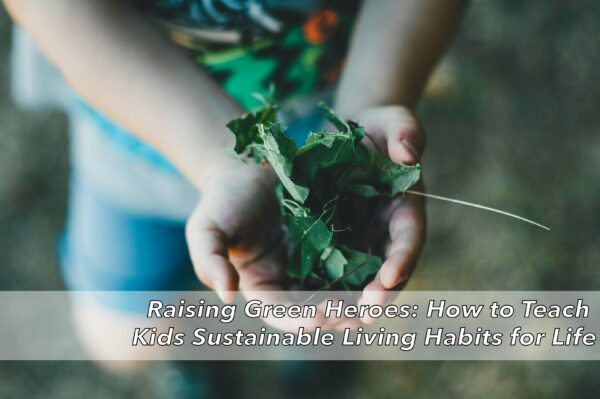Living an eco-friendly lifestyle doesn’t require drastic changes; small, everyday actions can significantly impact the environment. By adopting sustainable habits, we can reduce our ecological footprint and contribute to a healthier planet. Here are five practical tips to help you live more eco-friendly in your daily life.
1. Reduce, Reuse, Recycle
The mantra of sustainability—reduce, reuse, recycle—is a powerful way to minimize waste and conserve resources.
- Reduce: Be mindful of your consumption. Avoid single-use items and opt for products with minimal packaging. Choose quality over quantity to ensure that the items you buy last longer.
- Reuse: Before discarding items, think about how they can be repurposed. Use glass jars for storage, donate old clothes, and repair rather than replace broken items.
- Recycle: Properly sort your waste and recycle materials like paper, plastic, glass, and metal. Familiarize yourself with your local recycling guidelines to ensure you’re recycling correctly.
2. Opt for Sustainable Transportation
Transportation is a significant contributor to carbon emissions. By making conscious choices about how we travel, we can reduce our environmental impact.
- Walk or Bike: For short distances, consider walking or biking instead of driving. It’s not only eco-friendly but also beneficial for your health.
- Public Transportation: Use buses, trains, or subways to reduce the number of vehicles on the road. Public transportation systems are more energy-efficient and produce fewer emissions per passenger than cars.
- Carpooling and Ridesharing: Share rides with friends, family, or colleagues to cut down on individual car usage. Services like carpooling apps can make this easier.
3. Conserve Energy at Home
Energy conservation is crucial for reducing greenhouse gas emissions. Simple changes in your daily habits can lead to significant energy savings.
- Unplug Devices: Electronics and appliances consume energy even when turned off. Unplug chargers, TVs, and other devices when not in use, or use power strips to easily disconnect multiple items at once.
- LED Lighting: Switch to energy-efficient LED bulbs. They use less energy and last longer than traditional incandescent bulbs.
- Thermostat Management: Use a programmable thermostat to optimize your heating and cooling schedule. Lower the temperature when you’re asleep or away in winter, and raise it in summer.
4. Adopt a Plant-Based Diet
The food we eat has a substantial impact on the environment. Meat production, in particular, is resource-intensive and contributes to deforestation, water consumption, and greenhouse gas emissions.
- Meatless Meals: Incorporate more plant-based meals into your diet. Start with Meatless Mondays or try new vegetarian and vegan recipes.
- Local and Seasonal: Choose local and seasonal produce to reduce the carbon footprint associated with transporting food over long distances. Support farmers’ markets and local agriculture.
- Minimize Food Waste: Plan meals, store food properly, and use leftovers creatively to reduce food waste. Compost organic waste to return nutrients to the soil.
5. Choose Eco-Friendly Products
The products we use daily can significantly affect the environment. Opting for eco-friendly alternatives can make a big difference.
- Eco-Friendly Cleaning Products: Use natural, biodegradable cleaning products to avoid harmful chemicals. Common household items like vinegar, baking soda, and lemon can be effective cleaners.
- Sustainable Fashion: Choose clothing made from organic, recycled, or sustainable materials. Support brands that prioritize ethical production and sustainability.
- Reusable Items: Replace disposable items with reusable ones. Use cloth shopping bags, stainless steel water bottles, and beeswax wraps instead of plastic wrap.
Living an eco-friendly lifestyle is about making conscious choices that benefit both the environment and our well-being. By incorporating these five tips—reducing waste, opting for sustainable transportation, conserving energy, adopting a plant-based diet, and choosing eco-friendly products—you can make a significant impact. Small actions add up, and together we can work towards a more sustainable future. Embrace these eco-friendly practices and inspire those around you to do the same.



